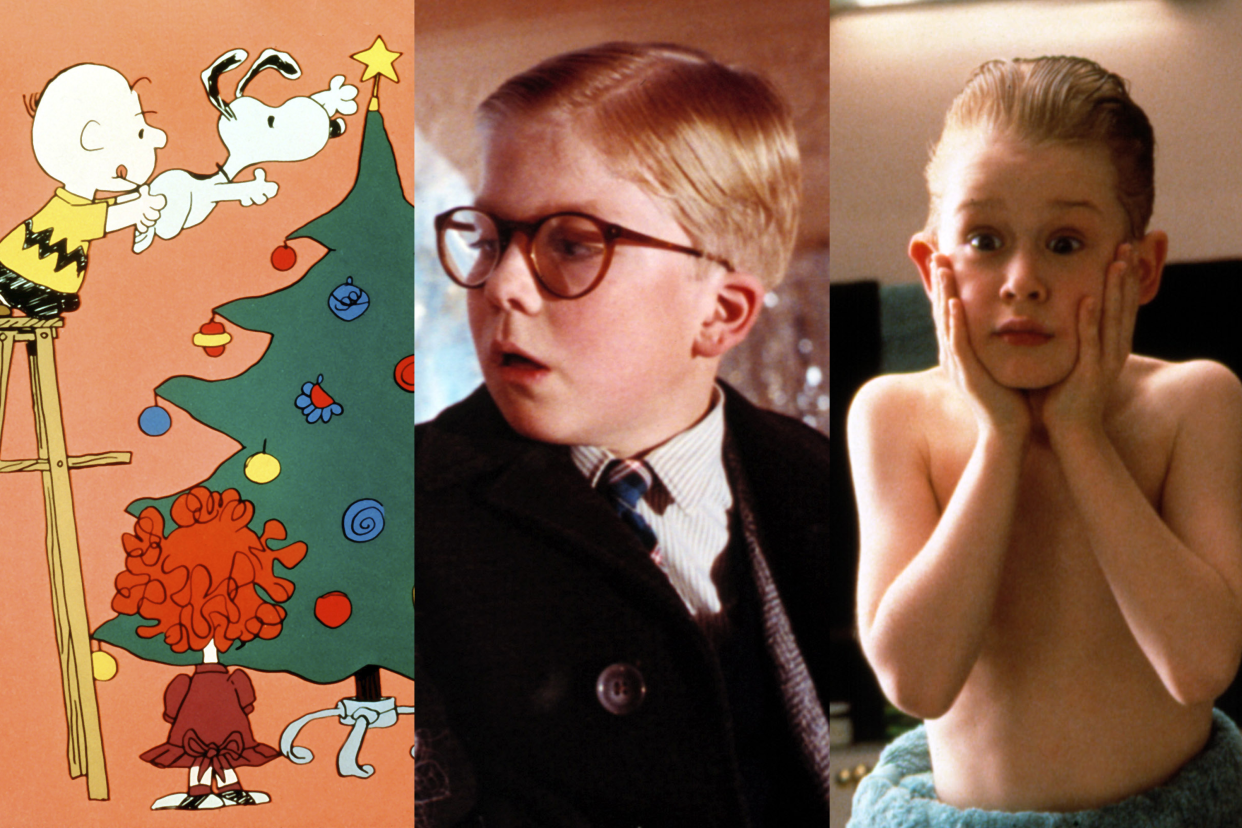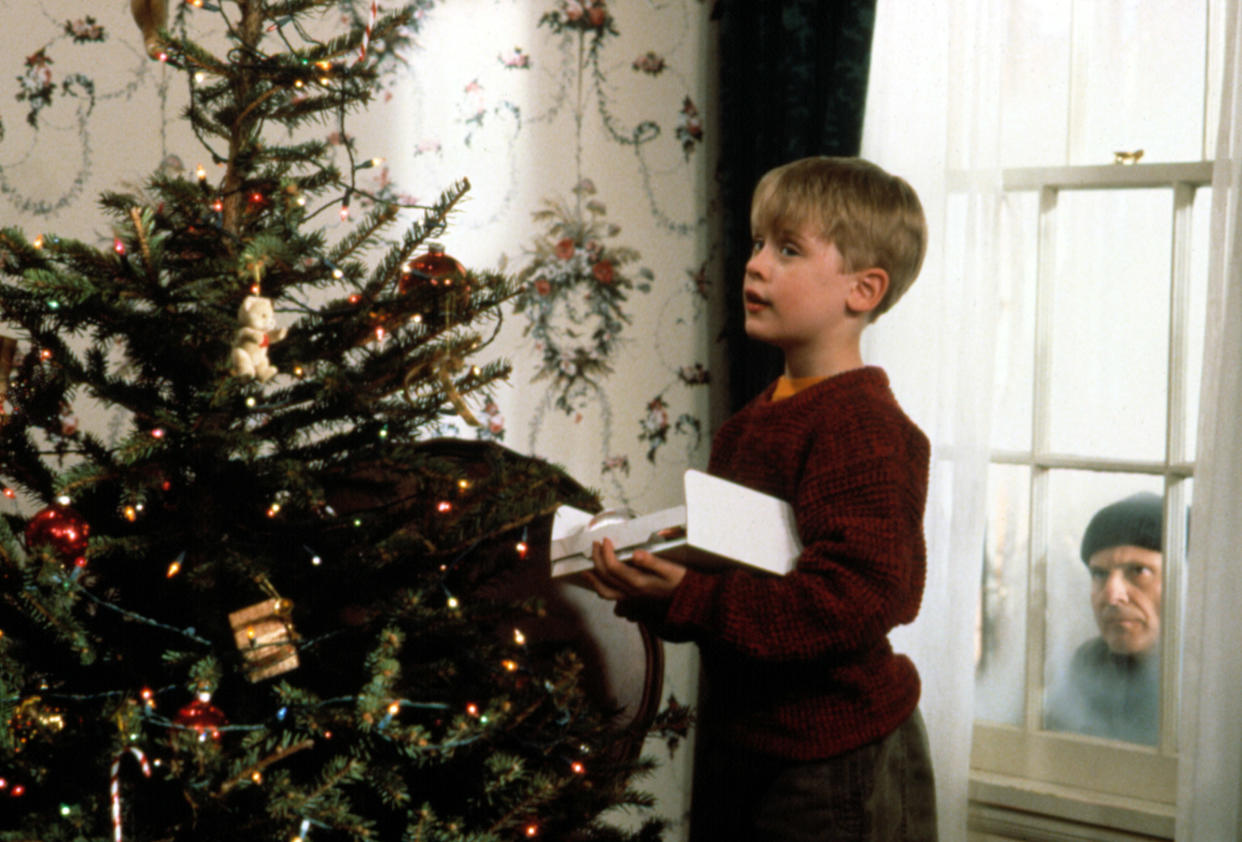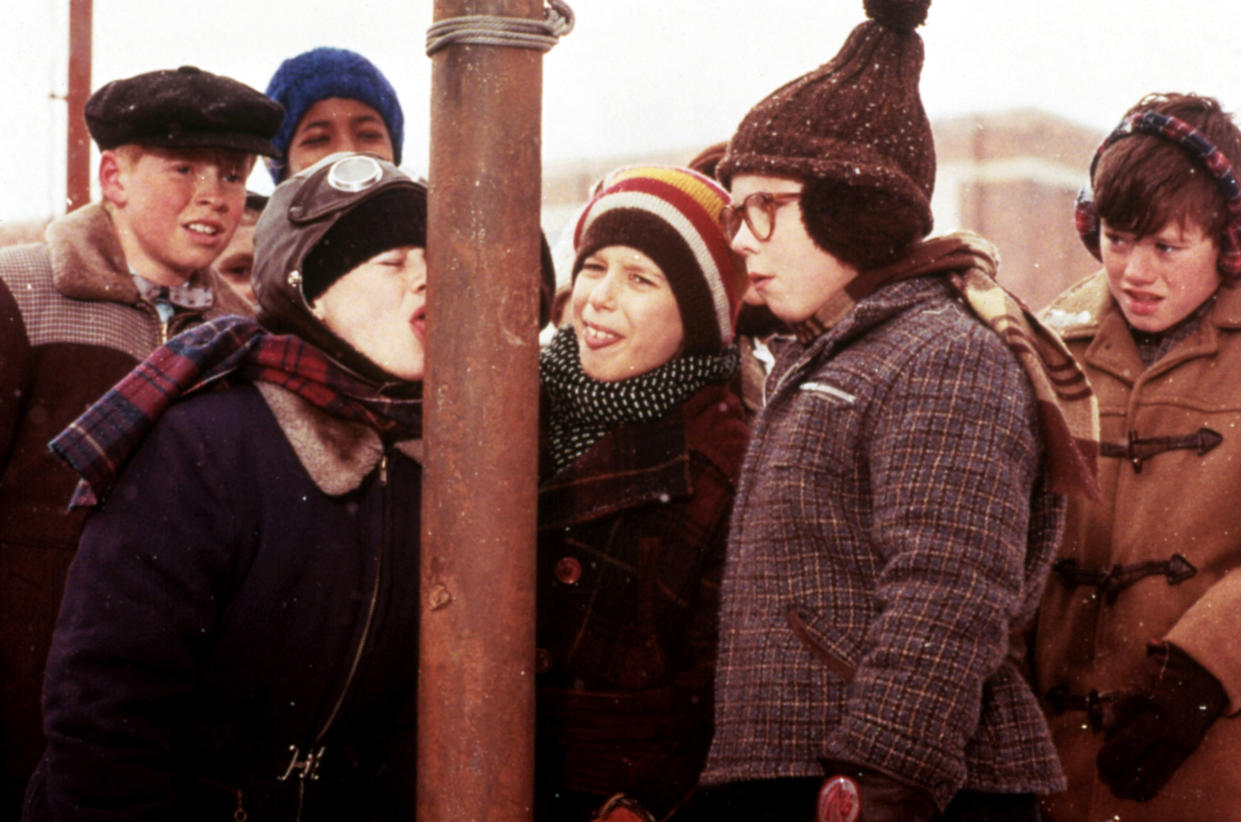'Home Alone,' 'A Christmas Story,' 'A Charlie Brown Christmas' are the most-rewatched holiday classics, new Yahoo News/YouGov poll shows. What makes them so beloved?

Good grief, we love A Charlie Brown Christmas.
The 25-minute animated special, featuring Charlie Brown, Lucy and — in a poignant, stand-out performance — Linus, debuted in 1965, and it's been bringing families together ever since. It's a must-see for many in an increasingly crowded market of holiday fare. And growing by the day on some channels. (Looking at you, Hallmark!)
According to a new Yahoo/YouGov poll, when presented with a list of 10 favorites for the yuletide season and asked to select which ones they regularly watched, respondents named Home Alone (34%), A Christmas Story (33%) and A Charlie Brown Christmas (32%) more frequently than the others. (The other titles included Rudolph the Red-Nosed Reindeer, 29%; Elf, 26%; Christmas Vacation, 25%; It's a Wonderful Life, 24%; The Santa Clause, 24%; Miracle on 34th Street, 21%; and Die Hard, 14%. They could also answer, "none of these," which 26% of people did.

So what is it about these titles and Christmas programming in general that makes us turn to them again and again, year after year?
Pamela Rutledge, director of the independent Media Psychology Research Center, which advocates for media and technology with a positive influence, says holiday films are beloved, first and foremost, because they make us feel something.
"They let us tap into emotions," she tells Yahoo Entertainment. "Whether we're laughing, crying or going 'awwww,' they allow us to experience the emotions associated with social validation, the power of connection, compassion and empathy."
They're also nostalgia triggers. Many of us have memories of watching Macaulay Culkin's Kevin McCallister sit down to pray over his Dec. 24 dinner of macaroni and cheese before the burglars arrive, hilariously pranking the pizza delivery guy or dropping paint buckets on the very inept bad guys.
"Holiday movies tap into tradition... triggering nostalgia for 'the good old days' when things seemed simpler, kinder and slower," Rutledge says. "The human brain is funny. It tends to remember happy events with a bit of fairy dust, amplifying the glow and heightening our enjoyment of positive memories. [The holiday favorites] become annual rituals, signifying the holiday season as much as Christmas carols playing at the mall."
In other words, they grant us, for however long they run, a visit back to the past, an escape, and one that is predictable and happy. We know the characters are going to discover the true meaning of Christmas and end up bursting with love.

As Rutledge notes, it's not surprising that audiences' favorite shows and movies from this time of year are actually beneficial to us physically. They help our hearts, because they lower stress, and up our resilience with an empathy boost and increases hope.
"Feeling good around the holidays is good for you," she says. "It releases stress and amplifies the warm feelings that that hustle and bustle of the holidays can generate. Especially after COVID, reinforcing the sense of warmth and connection is important."
We may cry over Charlie Brown's sad little tree or shiver over 'Old Man' Marley, but we know that the story will end happily with friends and family together again.Prof. T. Makana Chock, media psychologist and communications professor at Syracuse University
Penne L. Restad, the author of the book Christmas in America: A History, notes that two of the favorite movies poll respondents chose feature children without parents. They emphasize resourcefulness but also a reliance on others. Like most holiday movies, they follow a formula.
They "tend to be safe with predictable happy endings," explains Prof. T. Makana Chock, a media psychologist and communications professor at Syracuse University. "We may cry over Charlie Brown's sad little tree or shiver over 'Old Man' Marley, but we know that the story will end happily with friends and family together again. Predictable narratives and happy endings provide a sense of comfort and can temporarily alleviate the stress of daily life."
Thanks to Blockbuster and streaming services that followed, we can play Christmas movies — and the positive feelings they create — over and over. And over again the next year.
All this means that Christmas movies are repeatedly on the menu for families. As Restad notes, it's easier to talk about them than subjects such as politics.
"Movies like these are small, modern touchstones of stability in an increasingly hurried and harried world," Restad says. "They demand very little but can provide that (often gossamer) thread of connection among the viewers."
__________
The Yahoo Entertainment survey was conducted by YouGov using a nationally representative sample of 1,675 U.S. adults interviewed online from Nov. 9 to 13, 2023. The sample was weighted according to gender, age, race, education, 2020 election turnout and presidential vote, baseline party identification and current voter registration status. Demographic weighting targets come from the 2019 American Community Survey. Baseline party identification is the respondent's most recent answer given prior to Nov. 1, 2022, and is weighted to the estimated distribution at that time (33% Democratic, 27% Republican). Respondents were selected from YouGov's opt-in panel to be representative of all U.S. adults. The margin of error is approximately 2.8%.
